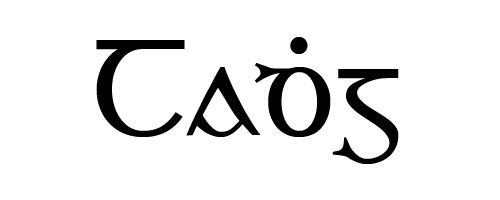What’s in a name?
It’s funny, I was discussing how people had issues with my name with my Dad over Christmas. This week, posts by both Tasbeeh Herwees and Cennydd Bowles were published, articulating far better than I ever could how people have felt when their name is butchered, and what it means to them when it’s gotten right. Being the owner of such a moniker, I have suffered the unbearable agony of hearing pretty much everyone I’ve ever met, upon reading my name, make a mess of pronouncing the four letters that make it. People I now call friends made the effort. Others didn’t, found it “funny” or mocked the name and its sound. I no longer know those people. It’s simple really. Tady. Four letters. How the hell can you get it so wrong? So, rather than try to re-iterate the points that have so eloquently already been put by my esteemed colleagues above, I thought I’d take this opportunity to teach you how to pronounce my name, where it came from and what it means.
My name is Tady. It (unfortunately you might say, but I don’t mind) rhymes with “lady”. It has one “D” so it does not rhyme with “caddy.” It has an “A,” not an “E” so it is not Teddy. Nor Tedy. I have pretty good handwriting, so, how I once received a package addressed to “Padi Walsh” is beyond me.
“Tady” is an old Irish name, specifically from Munster (more specifically, from Cork), an Anglicisation of “Tadhg”. What does that mean — Anglicisation? When Ireland and its people were part of the British empire and subjects of its crown, it was quite common for English lords and knights to receive land titles in reward for services to the King and/or Queen. It was also quite often that this land existed in Ireland. And it was again quite often this land already had a name and already belonged to someone else. So the lords and knights who arrived either renamed the land or made an effort to adapt the local Irish (you would say Gaelic, we call it “Irish”) name into some pronounceable English form. This was also the case with people’s names.
“Tadhg” (pronounced “T-eye-g”, rhyming with “thigh” without the “H” and with an extra “G” at the end… like “t’igh-g”) is an old Irish name, meaning “poet” and in old Irish, was written thus:

The dot over the “D” is called a “séimhiú” (pronounced “shay-voo”). This is called a lenticular and allows the “D” flow into the “G” without a harsh double consonant (so it’s not “Tad-guh”). The final letter is the old Irish alphabet way of writing “G”. It’s pretty easy to see how this could evolve from Tadg (ignoring the séimhiú) to Tady, given the construction of the old “G”. This is in a proper Gaelic typeface, but if you imagine this handwritten, I’m sure it would be very easy to mistake the final “G” for a “Y”.
I’m not sure where the Cork version of the name spelt “Thady” originates from (possibly a phonetic bastardisation of the Irish pronunciation. The Irish word for “to be,” “Tá” is pronounced almost exactly like “thaw”. There’s a soft palate on the T). I like to think of my name as the purest derivation of the word as it is spelt. I’ve always loved my name, even though it has been the bane of an awful amount of misery. Ironically, I’ve always hated the name Tadhg. I bear no ill-will to anyone who has that name, I just hate being called it myself. Tady was my mother’s father’s name, which is how it ended up with me, and I bear it with pride. I hope you’ll treat it with the care it deserves.
Update:
My Dad (him again) made the point on a Facebook comment relating to this post that my parents have often called me “Tadj” (like Taj in Taj Mahal, with a harder “J”). The penny has only just dropped as to why; it being a play on the pronunciation of Tadg. I’m not sure how I feel about this, now that I’ve made the connection, but great to learn!!!
